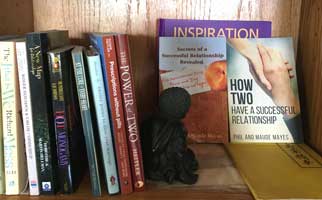Successful Relationship Reading Corner
 In this week's blog, we wrote about why matching values are important for your relationships. These articles cover a wide spectrum of ways to look at values. In this week's blog, we wrote about why matching values are important for your relationships. These articles cover a wide spectrum of ways to look at values.
What Should You Look For In A Partner? Here's How To Figure Out Your Core Values In Relationships, According To Experts "As we each navigate the ups-and-downs of our love lives — from meet-cute to breakup and back again — we're constantly learning more about ourselves, what we want in life, and what we value in relationships. Over time, everyone develops their own unique set of core values: fundamental beliefs that influence how we conduct ourselves in all aspects of life, including our romantic relationships."
Love and Values "Acting on feelings no doubt got you into a love relationship. Continuing to act on feelings will almost certainly get you out of it... On a routine basis, feelings are about temporary variations in comfort, convenience, pleasure, and status. Values, on the other hand, are stable over time and ultimately supported by a sense of character. While feelings create temporary importance, values give enduring meaning and purpose to life. Feelings may forge committed relationships, but values sustain them. The power of love comes not from its feelings but its values."
Value (ethics) "Values relate to the norms of a culture, but they are more global and intellectual than norms. Norms provide rules for behavior in specific situations, while values identify what should be judged as good or evil. While norms are standards, patterns, rules and guides of expected behavior, values are abstract concepts of what is important and worthwhile. Flying the national flag on a holiday is a norm, but it reflects the value of patriotism. Wearing dark clothing and appearing solemn are normative behaviors to manifest respect at a funeral. Different cultures represent values differently and to different levels of emphasis"
|
|